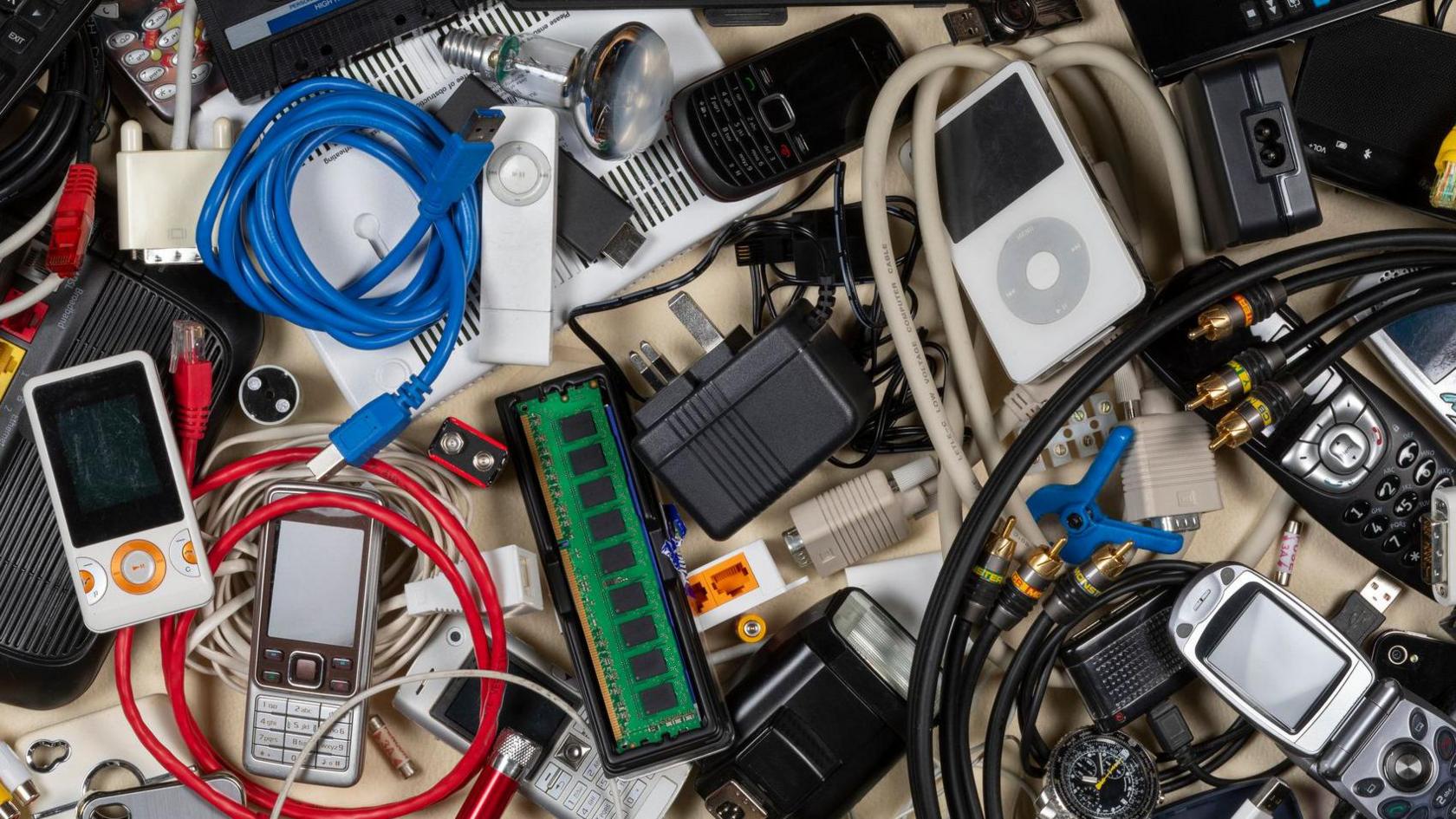Slow progress tackling UK 'e-waste tsunami' - MPs

There were enough unused cables in UK homes to go around the world five times, the Environmental Audit Committee wrote in a 2020 report
- Published
The government has made little progress on tackling e-waste in the UK, the Environment Audit Committee has said.
It published a report in November 2020 which said that every UK household had 20 unused electronic items at home.
"It appears the government is yet to grasp fully the scale of the e-waste tsunami," its chairman Philip Dunne told Environment Secretary Steve Barclay.
But the Department for the Environment, Food and Rural Affairs (Defra) said it was working to help people recycle items.
A spokesperson said: "Every year millions of household electricals across the UK end up in the bin rather than being correctly recycled or reused. This is a waste of our natural resources and has to stop.
"We are taking clear action on this issue - including proposals to make it easier to recycle and reuse unwanted gadgets and electricals and a ban on disposable vapes, which represent a huge and growing stream of hard-to-recycle waste. We will continue to drive forward our ambitions to move to a more circular economy."
'Disappointed'
Mr Dunne told Mr Barclay his committee's report had made 27 recommendations and the following February, in response, the government fully accepted one and part-accepted 22 of them.
He wrote: "The committee is disappointed to observe that while a number of our recommendations were accepted in whole or in part, the measures on which the government is currently consulting do not appear to implement any of them."
When e-waste is disposed of incorrectly, toxic chemicals can leak into the surrounding environment, Mr Dunne added in a separate statement.
"The precious metals needed for our mobile phones, tablets or headphones are needed for net zero Britain and renewable energy infrastructure," he said.
"As a select committee, we are encouraged when the government looks carefully at the evidence we have collected and accepts our recommendations. We are yet to see many of these initiatives make it into policy or be reflected in its current consultation on e-waste."
The letter urged the government to widen the scope of its consultation "to ensure that the broadest possible proposals can be brought forward in order to move the UK to a zero-waste economy".
Among proposals in a government consultation on the issue - which ended on 7 March - were making producers of electrical goods more responsible for their collection and treatment when they reach end-of-life, as well as for the net cost of this.
They would also require online sellers and retailers to offer a free collection on delivery service for bulky domestic electronics, such as washing machines or TVs.
The committee said it was "encouraged" by this proposal, but that the consultation's overall scope was too narrow and did not address many of its recommendations.
These included making online marketplaces, such as Amazon, follow the same rules as offline marketplaces in making sure the electronics they sell comply with UK law.
The committee also recommended a requirement for producers of electronic goods to detail on its labelling a product's expected lifetime and how long it will receive software updates.